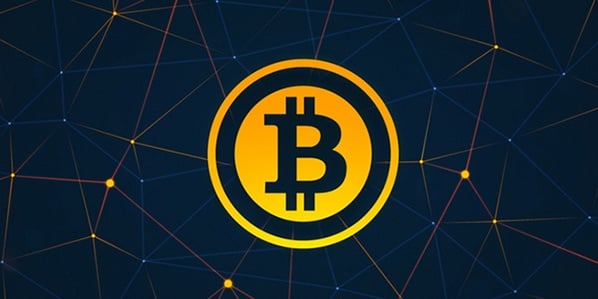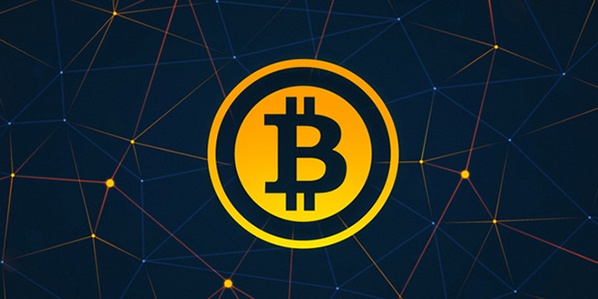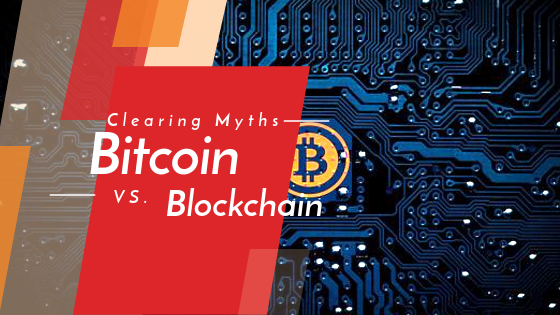Blockchain vs Bitcoin: Understanding the Distinction and Potential
In 2008 a person with pseudonym Satoshi Nakamoto introduced a revolutionary technology into the digital world. We now have access to a digital...
8 min read
Sales : Jan 15, 2018 12:00:00 AM


ICO i.e. Initial Coin Offering is the new wave of fundraising where ideators ditch the complete hassle of the lengthy funding process and raise capital via blockchain technology. With a simple plan of action on a white paper, a website and basic skills in coding anybody can raise tremendous capital from the cryptocurrency market.
While it does sounds cool, the absence of regulations expose investor’s money to huge risks. This makes ICO a very high risk and high reward market. Since its future looks oblique we tried to add some clarity to confusion. We reached out to some of the best industry experts who happily shared their insights with us on the future of ICO and its impact on financial markets.

You probably heard of the ICO (Initial Coin Offering, roughly a billion USD raised this year alone) phenomena. The idea is to have a similar mechanism as IPOs but on the blockchain, meaning better accessibility to investors worldwide, transparency, as well as unchangeable rules that rule the crowdfunding and later funds management (so-called smart contracts on Ethereum network, second network after Bitcoin).
Unfortunately, due to poorly written crowdfunding rules (smart contracts) and negligent investors, it is common for funds to be mismanaged post-ICO.
Despite the functionality that Ethereum smart contracts offer, almost all the ICOs are structured to allow the founders total control over all the funds post-ICO. Meaning there is a very little financial incentive for the development team to build the actual product.
Unfortunately, such short-sighted fundraising lead to negative perception in public and legislative steps taken by various governments (including the US and China).
In my view, rather than government regulation, it will be better computer code that will guide the evolution: “Smart contracts for smarter crowdfunding”. One current example is CryptoTask crowdfunding mechanism, with code audited by bitcoin/blockchain veteran Peter Vessenes (co-founder Bitcoin foundation, Pantera capital etc). The code makes sure that after the crowdfunding ends, stakeholders (so-called token holders) can vote on the project progress and in case that they are dissatisfied, smart contract refunds the investors. Only in case that the founders actually deliver, funds are released in stages.
Vedran Kajic is the Co-founder of CryptoTask - a decentralized freelancing market. @cryptotask_2017

“ICO’s are a great way to get interest in your project, reward your potential early customers and in some cases – raise cash. But be very very aware of the legalities of the whole process – as is widely reported the SEC and others are watching the space closely and have stepped in – in some cases. Mainly, consider ‘why’ you want to do an ICO – is that path to market reach/monies, etc. really the most efficient – or will a Reg A suffice? By all means – don’t go it yourself – utilize professionals to make sure its run properly and safely!”
Jason Remillard is the President of Data443 Risk Mitigation, Inc. and a founding member of the Blockchain Executive Group. @Data443Risk

ICOs are fundamentally changing the startup landscape because of the liquidity they provide to team members and investors. One of the great cons in the startup world is equity, which usually results in the employees being taken advantage of because they cannot sell their shares. By having a more liquid secondary market, the biggest challenge facing employees at startups is solved. This liquidity is a key reason why you see ICOs trading at such inflated market caps.
For this to fully work, there is a lot of work that still needs to take place. Teams and investors need to have lock-up periods that are legally binding to avoid pump & dump scams and insiders taking advantage of the public. The industry is still in the nascent stages, but already is revolutionizing how startups raise money. As more oversight comes into the market, we should see a fundamental shift in how startups provide equity to their team.
Emerson Taymor is the Founding Partner of Philosophie - a product design and IT company. @etaymor

ICOs and TGEs (token generation events) are revolutionizing the startup ecosystem--beyond what anyone thought possible. The ability to crowdfund a tech product/project is giving creators a freedom that has not existed in the space. Kickstarter proved the idea that people were willing to pre-purchase a product, and now ICOs and TGEs are taking that same idea and applying it to software and services. We have barely seen the disruption as few of the companies funded through ICOs have been brought to market, but the future is bright and wide-open. Blockchain and cryptocurrency have the ability to revolutionize the way tech gets done.
Jen Greyson, CEO, Neureal Network - Blockchain optimized for AI, @jengreyson

ICOs represent a new form of financing for both startups and existing business to help them traverse the "Chasm of Commercialization." The Chasm of Commercialization is that period between concept and profitability during which a company or project has a distinctly negative cash flow. This cash-flow problem can be sizeable enough that it prevents many good ideas from coming to market.
ICOs allow entrepreneurs an opportunity to raise serious cash (without diluting their equity stake) to finance their way across the Chasm of Commercialization until they begin generating positive cash flow from the sale of their product or service.
Prior to ICOs, entrepreneurs were limited to angel and VC investors. This is problematic for three reasons. First, due to geography, social class, language barriers, etc, these funding sources are not equally accessible to everyone. Second, such funders charge a high price by demanding significant equity in the new business.
After several rounds of such funding, the innovator can often find himself "crowded out" of a significant share of the profits from his idea. Third, these investors may have enough power to compel the innovator to change the direction of his concept in ways that he doesn't want to pursue, taking much of the joy out of the resulting success.
Jeff Stollman, a technology futurist with expertise in developing ICOs, white papers, business plans, other collateral materials to help innovators bring their concepts to market.

"ICO's are also democratizing early-stage investing, allowing a wider pool of investors to participate. Token offerings shift power and control to the blockchain rather than one or two influential investors. And by diversifying the cap table from the onset of a company's inception, founders can focus on building utility value for their token rather than appease large investors objectives. Venture capital is moving farther downstream to Series A or later allowing ICO's to play a pivotal role in helping a startup get off the ground"
Jeff Tennery CEO and co-founder, Moonlighting - a freelance job market. @jtennery

The ICO is providing a new model for companies to have access to capital that provides liquidity and the potential for growth in value as the company executes in the marketplace. In addition, the effect is amplified because the utility token model is a new way of doing business with customers and that new way of doing business may provide a significant advantage for an emerging technology. As the market transitions from a purely advertising model to a subscription and service model for the delivery of capabilities.
From Steven Sprague, CEO of Rivetz International (company concluded a successful ICO in September) @skswave

"ICO's will transform capital raising for many reasons, but the most important is that they will enable projects to be funded that would have never have been funded by VC's. Try to find a single VC that would have given $18m to the Ethereum foundation in 2014 to launch an open source world computer. There is literally zero chance of Ethereum being funded without a few visionaries like Joseph Lubin and without access to early bitcoin investors looking to reinvest their profits.
This is by far the most transformative aspect of the ICO, all you need are a few thousand people to believe in your project and you can get funded. Right now, this is being driven by speculation, but sanity will return and good projects will be funded. This is important because it represents a paradigm shift in how we innovate. It used to be that in order to scale a platform you needed to get funding from one of a few gatekeepers of capital, who likely all held similar views.
Now you can access pools of capital globally by finding a few individuals who will support you. What this means is that we will see far more experimentation across many different areas of technology. And while this may seem inefficient now, in the long run, investment in speculative projects by small groups of people brought together by the internet, will literally transform the world.
VC's are on average notoriously ineffective at investing, but survivorship bias prevents us from seeing this. The reason VC's struggle to efficiently allocate capital is that the world is far too random to be able to systematically predict what will happen in the future. The best way for us as a species to innovate is to set up a framework where anyone anywhere can come together to form a team and raise capital from people who believe in the vision of their project.
The ICO is just the beginning of this, and now that the benefits of this approach have been realized, anyone who is entrepreneurial will be attracted to this path rather than the traditional funding path. We, of course, need more structure to protect investors, but as long as it does not come at the cost of experimentation ICO's will be a net gain for humanity."
Kain Warwick, Founder of Havven - a distributed monetary system and stablecoin that allows users to transact with an asset-backed cryptocurrency pegged to the US Dollar. @havven_io

I would say traditional startups aren't really "phased" by ICOs, but it definitely opens up possibilities for lots of teams or ideas that would've had a difficult time taking off. The ICO industry is also headed in a way that people are getting smarter about running them and investing in them as well.
Now, you need a solid team and a bulletproof white paper at the least. Real MVPs are becoming somewhat of a requirement and it's getting more and more difficult to launch an ICO. With peer-to-peer funding, individuals have a voice. But everyone must consider what they're investing into and must do their own research and due diligence.
We ran our ICO in the past summer and had to go through a lot of EU-regulations. We know the difficulties of running a valid and successful ICO and decided we should also give back and help others launch using our Genesis platform.
Often times, people forget that there are laws in place. We're based in Estonia and we promote using e-Residency for our KYC / onboarding process and we plan on using it for our crypto assets exchange as well for additional security.
Hyun Lee, Communications & Marketing Director, Mothership Foundation @HyunLee

“With well over $3bn raised last year through token-based digital currencies, ICOs have definitely changed the way some businesses startup. Crowdfunding motivates supporters to build and grow projects. That includes developers and early-stage customers as well as the obvious support from investors.
ICOs are typically used to raise money ahead of a product launch rather than after. Since participants in an ICO are often relying on others to build the network or otherwise launch the product, even utility tokens, or the sale of them, can be considered securities. Some of the more successful ICOs have raised money with traditional venture capital finance and SAFT agreements, likely more successful due to the disciplined approach in preparing for a launch.
For genuine entrepreneurs, the ICO model makes it even easier to turn a good idea and a bit of determination into something spectacular, however, the impact is often overlooked with eyes set on fast cash and investors should take their time choosing a quality project.”
Daniel H. Jeffery, founder of crypto commerce company Lantah @DanielHJeffery

“ICOs are democratizing finance, but the “wild west” atmosphere surrounding them creates special challenges, he says. This includes many companies trying to get rich quick based on the experience of Bitcoin.
There are no clear regulations as of yet. Lots of companies are interested but a lot of companies are choosing to set up in jurisdictions that have ways of regulating these (ICOs),” he says. "It is totally wild west. The regulations don’t exist yet. There are no clear guidelines how to paint inside the lines. Even organizations that are trying to raise funds from their community of users are looking for certainty so they can comply with regulations.
There is a promise of ICOS democratizing finance, but the reality is it is new, not settled."
Matthew Schutte, Director of Communications, Holo - a software company building distributed computing infrastructure @matthewjosef
Overall, we can conclude that the concept of Initial Coin Offering is still in its infancy. With the rapid progress in blockchain development we can be sure that there will be more innovations in future. Meanwhile, ICOs might observe some regulations from governments and the network itself. As of now, the industry seems quite positive about the future of ICO. At the same time, it should be noted that there are considerable risks in this market and only people with good domain knowledge of crypto market should jump into it.
If you are looking for blockchain experts then your search ends here. We at NewGenApps have deep expertise in captilizing on innovative technologies. If you have a project then feel free to get in touch. Our developers are always ready to take up the most challenging tasks when it comes to delivering complex solutions.

In 2008 a person with pseudonym Satoshi Nakamoto introduced a revolutionary technology into the digital world. We now have access to a digital...

Blockchain is transforming everything! Be it payments transactions or how money is raised in the market, this life-altering technology is reshaping...